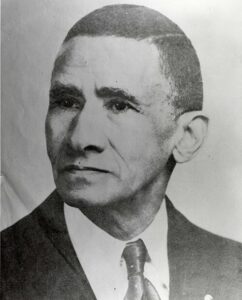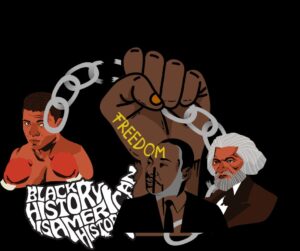Entrepreneurism and innovation has always been Black Culture because it has been the African American’s way of life from the beginning in order to survive and thrive. Black Culture, which is African American Culture, has long been entrepreneurship and innovation in a land where everything was taken from African Americans and they had to start over.
Since the times of slavery, when the vast majority of African Americans had no land or homes of their own in the United States of America, Black Business Culture, or in other words, African American Business Culture, had already taken form.
One perfect example of this would be the enslaved African Americans who utilized their own skills in order to earn money. No, this was not indentured servitude. During the days of slavery, Black enslaved needed permission from slavers in order to enter into their own business dealings, and most of the time, they would have to give most of their earnings to the slaver. This usage of their skills in making high quality things by hand that their white counterparts couldn’t create, such as furniture, baskets and even clothing, which would be known as fashion designers today, was entrepreneurship in Black Culture.
Enslaved African Americans would even grow food and a special tobacco to sell to earn money to eventually purchase not only their own freedom but the freedom of family members. After slave labor, it was common for many enslaved to work on their own businesses with the goal of freedom one day. There were others who would participate in a practice called hiring themselves out for service, which would be called the entrepreneurs in the service industry today as solopreneurs. This is one of the ways enslaved bought their freedom.
Innovation has always been part of Black Culture due to the yearn for freedom during times of slavery. One of the ways in which enslaved African Americans could gain freedom was inventing items to which the slaver would get credit for inventing. Even after slavery, inventions didn’t stop. Several African American inventors created things that still influence the world today such as the traffic light and bread processing machines.
An example of entrepreneurship in Black Culture, or in other words, Black Entrepreneur Culture, during slavery was an enslaved African American woman named Elizabeth Hobbs Keckley. She was enslaved, and with permission from her slaver, was able to go about town as a seamstress and clothing designer. She acquired many clientele and became very popular, so popular that she was able to purchase her freedom and go on to continue utilizing her skill in the White House.
Other examples of formerly enslaved entrepreneurship are in African Americans Booker T. Washington, founder of Tuskegee Institute; Ottowa Gurley, founder of Black Wall Street; Colonel Allen Allensworth, founder of Allensworth, California; George Washington Carver, agriculturalist and inventor, and Christiana “Madame Carteaux” Bannister who was born in 1819 during the times of slavery but may not have been enslaved.
Today, this same culture of entrepreneurship thrives in Black Culture. According to J.P. Morgan and Co. via the American Express, “The 2019 State of Women-Owned Businesses Report.” (September 2019), “Black women are the fastest growing demographic of entrepreneurs in the U.S., with nearly 2.7 million businesses nationwide.” African American people leave corporate jobs, choosing a life of entrepreneurship, according to Business Insider, versus choosing to deal with racism and discrimination on the job.

Segregation, racism and discrimination forced African Americans to fend all on their own from the very beginning, even after the Emancipation Proclamation, from the founding of their own educational institutions such as Bethune Cookman University, churches, medical offices such as Nina LittleJohn, publishing houses, real estate offices, such as Philip Payton, the Father of the Harlem Renaissance, and more.
Therefore, it is concluded that entrepreneurship and innovation is a major part in Black Culture, African American Culture, that has proven itself during slavery, in the Harlem Renaissance, through Jim Crow and beyond, even being documented today as Hip Hop, a form of music created by African Americans in New York utilizing the sound and rhythm formed by African Americans, has overtaken every genre of music on the globe, according to USA Today labeling Hip Hop Is Now King in its February 27, 2023 print newspaper on the front page. Black Entrepreneur Culture is second nature, captivating watchers globally as it forms new things every year.
Again, entrepreneurism and innovation has always been Black Culture because it has been the African American’s way of life from the beginning in order to survive and thrive.





More Related Stories
More Black American Midwives Are Needed Across the USA After Systemic Attacks Reduced Their Numbers in the 1900s
Purchase Land & Make it an Asset, Not a Liability
Need Money To Start a Business? Apply For a Business Loan Using These Steps